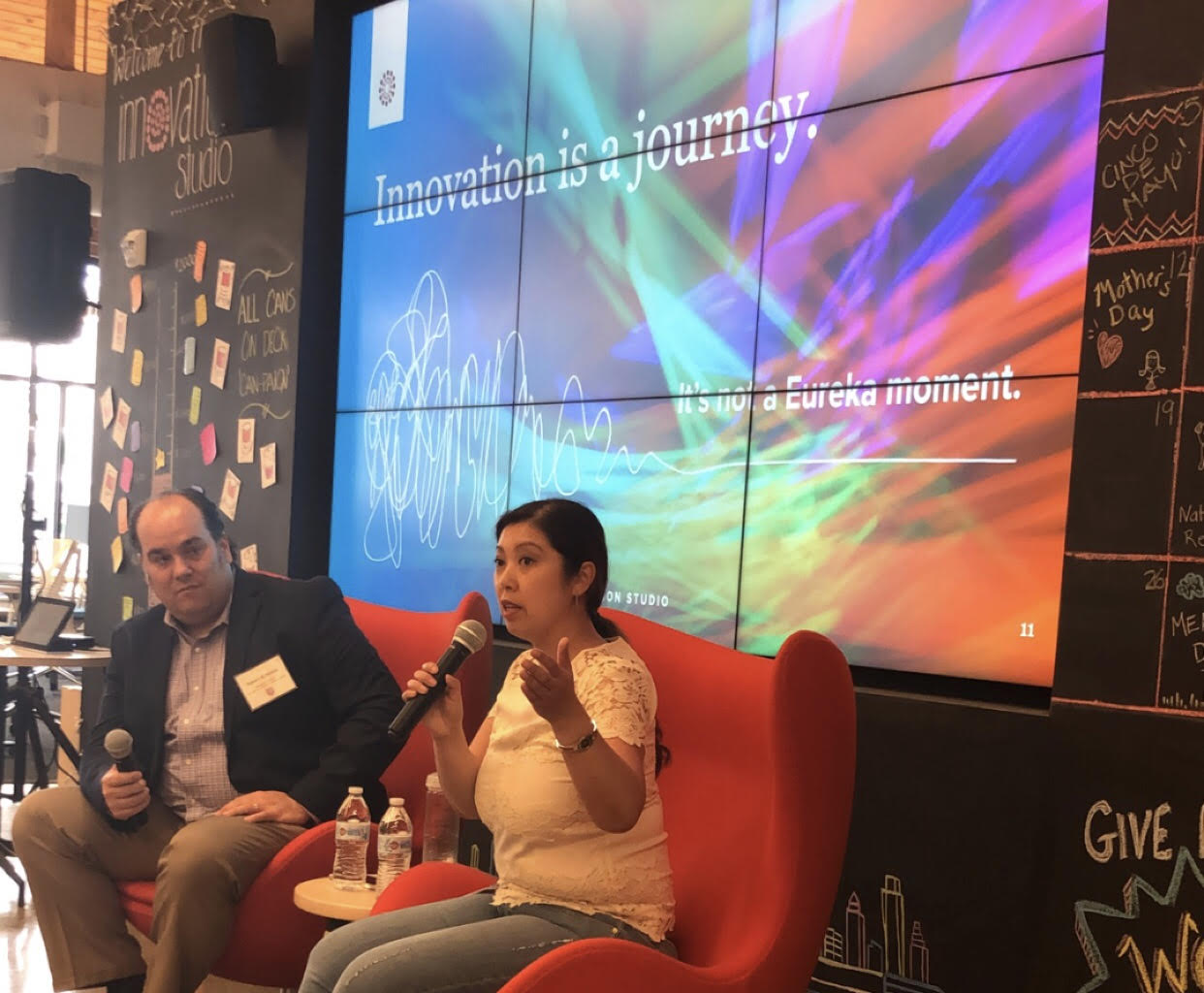ILSS event from 2019
The Innovation Leaders Speaker Series (ILSS), hosted by the Innovation & Entrepreneurship Institute at Temple University, creates a community for learning innovation management practices and entrepreneurial thinking through panels of experienced leaders. On Wednesday, Nov. 3, along with the Center for Ethics, Diversity and Workplace Culture (CEDWC), the IEI hosted their most recent ILSS event, “Innovation and Collaboration in the Remote and Woke Workplace” featuring a panel discussion centered around remote work and the social dynamics of it.
Many students and IEI members attended in hopes of learning from professionals within various fields. Panelists included Kelli Clark, J Mendes and Jameel Rush. The panel was moderated by Eric Brunner, assistant vice president of the Learning and Development Division at Temple University’s Human Resources Department.
The discussion revolved around the idea of human-centric workplaces, as opposed to product-centric workplaces. Jameel Rush, the vice president of Diversity, Equity, and Inclusion (DEI) at The Philadelphia Inquirer, noted that workplaces must tailor their requirements to the person. “There’s an expectation now that companies deal with the whole person. It started before the pandemic but was expedited during the pandemic,” says Rush.
Companies recognize that they need to attract workers by recognizing their value and providing value back to them. J Mendes, the co-founder of the Future of Work Conference and Event Manager for Repeople, the oldest remote work conference in Europe, focused on the benefits of remote work.
Kelli Clark is the chief culture officer at Aon and directs the company’s inclusive leadership initiatives, diversity, onboarding and early careers. Clark asserts that many of the top employees at Aon took an up to 20% pay cut during the pandemic so they didn’t need to lay off anyone. They also have global holidays so everyone in the company takes the day off to take care of themselves. Similarly, Rush says that other companies need better trauma and wellness training for leadership to avoid burnout.
Technology was another theme of the conversation. “For the first time, everybody in the organization is trying to solve a problem from an equal playing field,” says Clark, in regards to technological skill in the workplace.
Due to the lack of so-called in-person “water cooler chat,” workers seem to be able to focus more. Technology also gives employees more freedom and power to assert their value as they no longer rely fully on the employer, says Mendes. Effective collaboration is another benefit of technology as people don’t need to be next to one another to get things done, the panelists explain. On the other hand, the audience did ask about separating work and home while working remotely. Mendes says, “traveling can be a solution for people to keep working and being remote.”
When the conversation turned to the use of artificial intelligence (AI), the panelists point out that AI takes on menial repetitive tasks but lacks the nuance humans provide. Rush focused on how AI impacts DEI for this question saying, “in this virtual environment, we’ve created new biases.”
In terms of technological equity, Mendes and Rush agree that the focus needs to be on giving resources to new hires in the onboarding process. According to Mendes, some companies are implementing a grant-like process to provide workers with the tools necessary to be successful while working from home. “You put aside resources to focus on specific populations that may be less comfortable,” says Rush.
Overall, the biggest transition that occurred during the world’s shift to remote work was that companies now need to provide more value to employees. Between the Great Resignation and remote work capabilities, companies need to be more competitive in what they provide rather than the other way around.
The Innovation Leadership Speaker Series creates a community of learning around innovation management best practices and entrepreneurial thinking. The series is hosted by the Innovation & Entrepreneurship Institute at the Fox School of Business at Temple University, along with partner organizations the Product Development and Management Association, Innovation Research Interchange, and Technical.ly Philly. This panel is co-sponsored by the Fox School’s Center for Ethics, Diversity and Workplace Culture.

